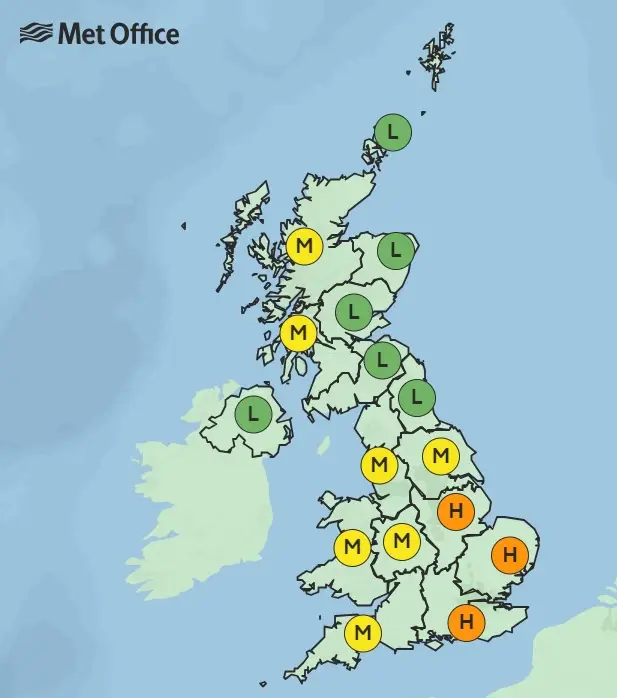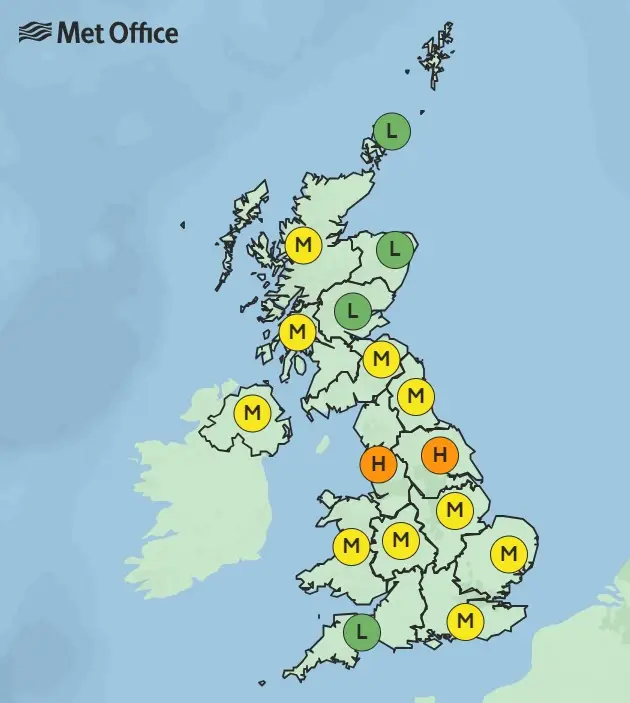
We're sorry to say that it's hay-fever season once again and as such some of you might feel like your face is trying to kill you.
Runny noses, itchy eyes and sneezing sessions that feel like they never end are going to be your fate for the next few months, but as bad as it is, you might have noticed things getting even worse this year.
Hay-fever isn't much fun at the best of times but the annual 'pollen bomb' seems to be more potent this time.
Advert
Just taking a quick peek at the Met Office's pollen forecasts across the UK in the next few days, it's high in Yorkshire and the North West of England, and medium in many other parts of the country today (2 May).
And Friday looks to be a thankful respite from high pollen levels, but we're really having to say that Saturday is a kick in the knackers for hay-fever sufferers.

Sunday (5 May) is likewise shaping up to be another punishing day of pollen, and while things ease off after that it's just a signal of what's to come and assault your sinuses this summer.
According to IFL Science, a 'pollen bomb' is when groups of trees all release pollen at about the same time which leads to massive amounts of the stuff getting into the air and up your nose.
They wrote that pollen in the UK comes in three waves, as between March and May we get that first barrage of tree pollen, before grass pollen kicks in until July, while from June until the autumn pollen from weeds such as mugwort are swirling around.
As for the bad times of pollen, well buckle up gang as Dr Bernd Eggen warned earlier this year that climate change could make hay-fever even worse.
He wrote that rising temperatures could lead to higher levels of pollen - meaning those who suffer from hayfever could be suffering more often.

Climate change risks making the 'pollen season' longer, and Dr Eggen said that it could also 'change the potency of pollen', which is scientifically fascinating and also the stuff of nightmares for people who have hay-fever.
And in really bad cases, it could result in pollen being released as early as February, meaning you could go right from the Christmas sniffles into late winter hay-fever.
He also highlighted the growth of certain invasive species, like ragweed, which produced massive amounts of pollen.
The doctor suggested that hay-fever sufferers get an app which allowed them to access specific individual forecasts and provide feedback.
He also recommended more be done to monitor the spread of invasive plant species to help curtail their spread and by extension the pollen they spread.
Topics: Health, Weather, UK News, Global Warming